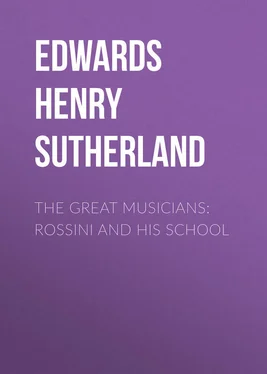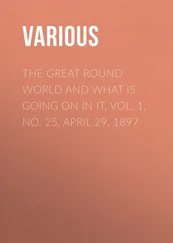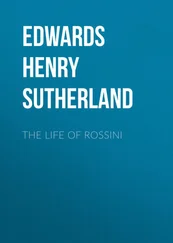Rossini's success, due above all to the fascinating character of his easily appreciable melodies, was instantaneous; and it spread like wild-fire from Italy all over Europe. More than a quarter of a century, however, passed before Mozart's great works made their way from Vienna to the chief cities of Italy, and to the capitals of France and England. This tardy recognition of Mozart's dramatic genius may be explained in part by the outbreak of the French revolution soon after their production, and by the wars which distracted Europe from the time of the French revolution until the pacification of 1815.
Tancredi , composed a year after La Pietra del Paragone , was Rossini's first serious opera. It was also the first opera by which he became known throughout Europe.
To amateurs of the present day its melodies appear of old-fashioned, or at least of antique cast. The recitatives seem long, and they are interminable compared with those by which Verdi connects his musical pieces. But when Tancredi was first brought out opera seria consisted almost entirely of recitative, relieved here and there and only at long intervals by solo airs. For much of this declamation Rossini substituted singing; for endless monologues and dialogues supported by a few chords, concerted pieces connected and supported by a brilliant orchestral accompaniment.
Rossini, in fact, introduced into serious opera the forms which comic opera already possessed. The parts were at that time differently distributed in opera seria and opera buffa ; and in the latter less restricted style the bass singer was not as a matter of course kept in the background. Tancredi was the first serious opera in which a certain prominence was given to the bass, though it was not until some years later – in Otello , 1816, in La Gazza Ladra , 1817, and in Mosè , 1818 – that Rossini ventured to entrust bass singers with leading parts. Opera seria , when Rossini was beginning his career, was governed by rules as strict, as formal, and as thoroughly conventional as those which gave so much artificiality and so much dulness to the classical drama of France. The company for comic opera consisted of the primo buffo (tenor), prima buffa , buffo caricato (bass), seconda buffa , and ultima parte (bass). The company for serious opera was made up of the primo uomo (soprano), prima donna , and tenor, the secondo uomo (soprano), seconda donna , and ultima parte (bass); and in serious opera the ultima parte was not only kept in the background, but, except in concerted pieces, was scarcely ever heard.
As a solo singer, the bass in serious opera had no existence. Gradually Rossini brought him forward, until he became at last as prominent as the tenor, or even more so. In Semiramide
Конец ознакомительного фрагмента.
Текст предоставлен ООО «ЛитРес».
Прочитайте эту книгу целиком, купив полную легальную версию на ЛитРес.
Безопасно оплатить книгу можно банковской картой Visa, MasterCard, Maestro, со счета мобильного телефона, с платежного терминала, в салоне МТС или Связной, через PayPal, WebMoney, Яндекс.Деньги, QIWI Кошелек, бонусными картами или другим удобным Вам способом.
Cenni di una donna già cantante sopra il maestro Rossini.












